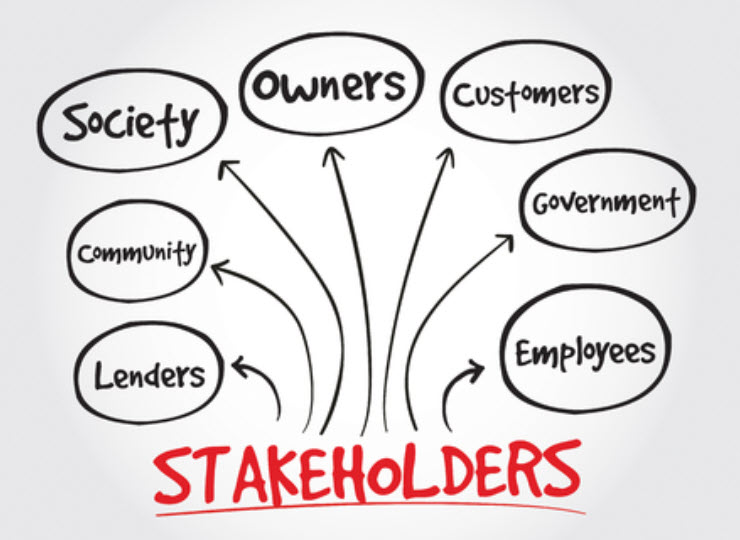 In recent weeks, Revitalization Partners has been approached by several companies for assistance.
In recent weeks, Revitalization Partners has been approached by several companies for assistance.
While the problems at each company differ, there is a common thread that runs through the requests.
None of the companies that we have spoken with have current financial statements.
And yet while each of the owners or managers we speak with know that it’s a problem, they all seem to have justifications for not being able to produce monthly P&L, Balance Sheet and Cash Flow statements within a reasonable time following the close of a month.
WHY IT’S CRUCIAL …
 Having timely accurate financial statements is critical for a number of reasons. Management relies on internal financial reporting to assess the health of the business and to make sound decisions regarding capitalizing on opportunities and mitigating risks.
Having timely accurate financial statements is critical for a number of reasons. Management relies on internal financial reporting to assess the health of the business and to make sound decisions regarding capitalizing on opportunities and mitigating risks.
If a business does not produce timely reporting or has inaccurate financial statements, management will not have the appropriate information to operate the business, and more importantly, will not be able to recognize problems and make course corrections before it’s too late.
Inaccurate or lack of timely reporting can also make your company appear less valuable than it is, or worse, cause significant legal problems.
STAKEHOLDER’S RELIANCE …
 Board of Directors, banks, and shareholders rely on these statements to assess the performance and value of a company. Inaccurate or no financial statements results in providing an erroneous view of the company’s finances and when the truth ultimately comes out, the creditability of management is called into question by one or more of these groups.
Board of Directors, banks, and shareholders rely on these statements to assess the performance and value of a company. Inaccurate or no financial statements results in providing an erroneous view of the company’s finances and when the truth ultimately comes out, the creditability of management is called into question by one or more of these groups.
The reports lack comparative data showing, for example, how a particular quarter compares to previous quarter or how actual spending compares to the budget.
- The reports lack comparative data showing, for example, how a particular quarter compares to previous quarter or how actual spending compares to the budget.
- Reports that do include comparative data leave it to the readers to interpret. A report that shows monthly sales revenue for the past year but doesn’t translate the differences into percentages requires the readers to make the calculation. They’re more likely to get it wrong or misinterpret what they’re reading. And if you don’t consistently have the data, you don’t know how business trends are changing.
 Your accounting team or bookkeeper doesn’t follow Generally Accepted Accounting Principles (GAAP). The consequence of not following GAAP, may contribute to the inaccuracy of the financial statements. Banks typically require their borrowers to follow GAAP and by not adhering to this standard, it may likely put your lending relationship in jeopardy.
Your accounting team or bookkeeper doesn’t follow Generally Accepted Accounting Principles (GAAP). The consequence of not following GAAP, may contribute to the inaccuracy of the financial statements. Banks typically require their borrowers to follow GAAP and by not adhering to this standard, it may likely put your lending relationship in jeopardy.- You receive internal financial reports, but you don’t read them. As a result, you can’t spot any discrepancies or oddities in the accounting for your business, if you don’t look for them.
- You read the reports, but don’t analyze them. If there are negative trends such as accounts receivable taking longer to pay, you need to spot them before you can identify the problem and take action. As an example, you and your bookkeeper know one of your customers won’t ever pay, but you don’t alert management to the risk or take action to accelerate collection and adjust accounts receivable to reflect the potential bad debt.
 Not monitoring cash flow closely. Even if your income is good, poor cash flow means you could lack sufficient cash to pay your bills. Your accounting team needs to update the cash-flow statement even more frequently than other forms of financial reports and provide commentary regarding any issues that they see.
Not monitoring cash flow closely. Even if your income is good, poor cash flow means you could lack sufficient cash to pay your bills. Your accounting team needs to update the cash-flow statement even more frequently than other forms of financial reports and provide commentary regarding any issues that they see.
WASTED TIME …
 One consequence of inaccurate reporting is wasted time.
One consequence of inaccurate reporting is wasted time.
If you don’t have experienced accountants and/or bookkeepers in your accounting department, there may be significant human error and inaccurate accounting from data flowing in from multiple sources within the company.
Your accounting department may have to spend hours or days each quarter reconciling financial data throughout your organization.
That can add up to a lot of salary spent fighting financial-reporting fires and can impede the flow of information.
MAKING GOOD DECISIONS HARDER …
 Another consequence is that inaccurate information makes it harder to make good decisions. Companies rely on accurate financial data for budgeting, forecasting and developing performance indicators.
Another consequence is that inaccurate information makes it harder to make good decisions. Companies rely on accurate financial data for budgeting, forecasting and developing performance indicators.
If information related to sales and profitability metrics as well as research and development expenditures are inaccurate, the problems will perpetuate themselves and your projections and budgets could be inaccurate as well.
If your reports understate your debt load, you may discover you’re deeper in the red than you thought. Errors in financial reporting can also hurt in other ways until they’re corrected. For example, exaggerated profits may lead to higher taxes, while underestimated profits make your company looks less valuable.
VULNERABLE TO FRAUD …
 One of the biggest problems of not having or paying attention to financial reports is that it leaves the company open to financial fraud. Unsurprisingly, many people commit financial-statement fraud for personal gain.
One of the biggest problems of not having or paying attention to financial reports is that it leaves the company open to financial fraud. Unsurprisingly, many people commit financial-statement fraud for personal gain.
If their bonus depends on how much revenue their department brings in, it could be in their self-interest to inflate revenue on the income statement. If company performance was poor, upper management may keep the owners happy by manipulating the data which results in false financial statements that say otherwise.
Management sometimes also commit fraud, by misrepresenting the company’s financial health to impress investors or hide taxable income. Management fraud schemes aren’t necessarily about enriching the schemers. Business owners may manipulate the accounts to make the company look healthier to investors or lenders. They can do this by either inflating income and asset values or underplaying the company’s debts and liabilities.
LISTEN TO YOUR GUT …
 If you think there’s something shady going on, ask for help. However, it’s better to set things up so fraud can’t get started. Strong internal controls are a must.
If you think there’s something shady going on, ask for help. However, it’s better to set things up so fraud can’t get started. Strong internal controls are a must.
Also creating a culture of accountability and transparency is extremely important. Management must independently review financial statements to assess their accuracy.
In addition, having an outside accounting firm conduct an outside review of the financial statements at least once a year, is essential to ensure accurate reporting.
Finally, it’s important to have a system for employees to report suspicious behavior as an additional check and balance for management to get ahead of any potential problems in the company.
And above all, always listen to your gut. If you feel something’s wrong, ask questions; if the answers don’t add up, start digging deeper.
 Revitalization Partners specializes in improving the operational and financial results of companies and providing hands-on expertise in virtually every circumstance, with a focus on small and mid-market organizations. Whether your requirement is Interim Management, a Business Assessment, Revitalization and Reengineering, a State Receivership or Bankruptcy Support, we focus on giving you the best resolution in the fastest time with the highest possible return.
Revitalization Partners specializes in improving the operational and financial results of companies and providing hands-on expertise in virtually every circumstance, with a focus on small and mid-market organizations. Whether your requirement is Interim Management, a Business Assessment, Revitalization and Reengineering, a State Receivership or Bankruptcy Support, we focus on giving you the best resolution in the fastest time with the highest possible return.


